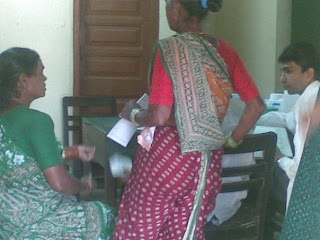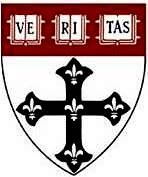
Photo of me with the Viceminister of Governance and Police, Ana Durán
in her office in San Jose, Costa Rica
I am excited to write my first post for the HSPH eConnection blog. I am going into my second year of the ScM program in Society, Human Development, and Health and had the amazing opportunity to travel to Central America this summer to meet with organizations who are helping women and girls who have been sexually exploited or trafficked into sex work. The goal was to understand what data exists on the prevalence of this problem, the activities being done to combat it, and improve our understanding of the age and vulnerabilities of victims. The final product? A feasibility assessment to be submitted to the US Department of State, Global Trafficking in Persons Office. (This is just one exploratory aspect of a larger multi-regional study into sex trafficking vulnerabilities around the globe).
I began my 4-week journey at a small non-profit on the outskirts of Managua, Nicaragua,
House of Hope (a.k.a. Casa Esperanza). It is a faith-based organization that houses families of women and children, as well as girls who have been involved with sex work. Some entered sex work voluntarily, others were coerced or forced by neighbors, strangers, even their own
family. I wrote a
few posts on my experience staying, living, and meeting the women and girls with incredible stories at House of Hope in my public health blog,
Veritas Health. Check out my posts if you are interested in learning more about them.
House of Hope relies primarily on donations from churches and individuals to keep their programs running. They finance education for the children of women who live at and participate in House of Hope activities (including the weekly card-making), which includes buying uniforms and school supplies and paying monthly school fees. Health care is provided to women that reside at House of Hope. Additionally, throughout the year House of Hope has teams of people who come (mostly from the US) to provide counseling, do construction, and provided needed medical services (such as screening for infectious and chronic diseases).
The next few weeks were spent interviewing and visiting organizations that were working in the area of trafficking and/or sexual exploitation of women and girls. I was able to speak with leaders at the
International Organization for Migration in Nicaragua and Costa Rica, the Viceminister of Governance and Police of Costa Rica, US Embassy officials, as well as directors of other non-profits of varying sizes, including Grethel Lopez M. at
Casa Alianza in Managua and Mariliana Morales Berries founder of
Fundación Rahab in San Jose.
What amazed me most about my trip was the bright, joyful spirit of many of the girls and women that I met. Nearly all of them had been through severe trauma (physical abuse, incest, rape) and been brought up in such difficult circumstances, yet they show signs of hope in their future. The education and vocational training aspects of the organizations, and also the spiritual and emotional healing, seemed to inspire this positive perspective. This is not to say there weren't many difficulties for the organizations working with these women and girls -- it is not easy to build trust, when trust has been broken over and over, and to provide a sense of security, when violence and violation have been a fact of life.
The experience also taught me about self-determination and tested my courage. I was nervous that my Spanish (which I hadn't spoken in about 2 years) would not be sufficient for meeting with these high-level executives who, for the most part, spoke little or no English. I also was concerned that I would have trouble getting people to sit down and speak with me. Thankfully, my supervisor (SHDH Professor Jay Silverman) gave me some great advice and helped me prepare for my trip. Nonetheless I had to dot the i's and cross the t's myself. It took some time to muster up the courage to cold call the organizations from my lodging in Managua and San Jose. But each time I did, I was reassured -- meeting after meeting was scheduled, without fail.
I returned at the end of June, excited to share all that I had learned and experienced with the rest of my team (this project is part of
Jay Silverman's work on sex trafficking with the US DOS) and family. My time at House of Hope will make its way into
my presentation on sex trafficking, violence victimization, and condom use at the
APHA Anual Meeting this November. Notes and data that I collected will be shared with the US DOS in a feasibility assessment that I have already begun. Finally, I will be developing an Access database for one of the NGOs I met with in San Jose in order to transition them from paper records to a digital database.
There is so much more I could write about, but this will have to do for now. If you have questions or want to know more about my experience feel free to contact me at email address below.
Also, if you would like to write about your summer practicum or employment let us know!
Katelyn Mack
ScM Candidate
Society, Human Development, and Health
Co-Editor in Chief, The Public Health eConnection
kmack@hsph.harvard.edu








